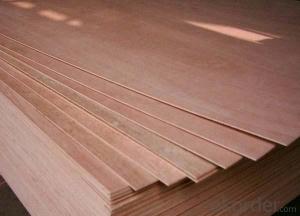1/4 Plywood: A Journey Through Its Charms and Versatility
Plywood, a versatile and reliable material, has been a staple in the woodworking and construction industry for decades. Among its various types, 1/4 plywood stands out as a light and flexible option that offers a multitude of applications. This article takes you on a journey to explore the unique characteristics, benefits, and uses of 1/4 plywood, all while maintaining a casual and engaging tone.
The Essence of 1/4 Plywood
1/4 plywood, as the name suggests, is plywood that is a quarter of an inch thick. It’s a popular choice for a variety of projects due to its lightweight nature and ease of handling. Whether you’re a seasoned woodworker or a DIY enthusiast, the charm of 1/4 plywood lies in its simplicity and the endless possibilities it presents.
A Walk Through the Plywood Family
Before we dive deeper into 1/4 plywood, let’s take a quick stroll through the plywood family. Plywood comes in different thicknesses, from 1/8 inch to 3/4 inch or even more. Each thickness has its specific uses, but 1/4 plywood strikes a perfect balance between sturdiness and flexibility, making it ideal for a wide range of applications.
Why Choose 1/4 Plywood?
Choosing 1/4 plywood is like picking the right tool for the job. It’s not the thickest or the thinnest, but it’s just right for many tasks. Here are some compelling reasons why 1/4 plywood is a favorite among woodworkers and hobbyists:
– Lightweight: Easy to carry and maneuver, 1/4 plywood is perfect for projects where weight is a concern.
– Cost-Effective: It’s more affordable than thicker plywood, making it an attractive option for those on a budget.
– Versatile: Use it for furniture making, cabinetry, shelving, or even art projects. The list is as long as your imagination.
– Easy to Work With: It can be cut, sanded, and painted with relative ease, making it a great choice for beginners and experts alike.
The Art of Cutting 1/4 Plywood
Cutting 1/4 plywood is an art in itself. With the right tools and a steady hand, you can create precise shapes and sizes for your projects. Here are some tips to make your cutting experience smooth and enjoyable:
– Use a sharp utility knife for straight lines.
– Employ a jigsaw for curved edges.
– Remember to score the wood before cutting to reduce splintering.
– Always measure twice and cut once to avoid mistakes.
Painting and Finishing 1/4 Plywood
One of the joys of working with 1/4 plywood is the ability to transform its appearance with paint or other finishes. Whether you want a rustic look or a sleek, modern finish, here’s how to get the best results:
– Start with a clean surface. Sand the plywood to remove any rough spots or imperfections.
– Apply a primer before painting to ensure better adhesion and coverage.
– Choose high-quality paints and finishes for a professional look.
– Don’t forget to seal the edges to protect the plywood from moisture and damage.
Projects to Try with 1/4 Plywood
The world is your canvas when it comes to 1/4 plywood. Here are some project ideas to get your creative juices flowing:
– Furniture: Create a stylish coffee table or a functional side table.
– Shelving: Build custom shelves to fit your space and storage needs.
– Art: Use it as a canvas for painting or as a base for mixed media art.
– Crafts: Perfect for model making, dollhouses, or any other craft project you can imagine.
The Sustainability Factor
Plywood, including 1/4 plywood, is often made from sustainable sources. By choosing plywood, you’re not only getting a high-quality material but also contributing to environmental sustainability. This is a win-win for both your projects and the planet.
The Downside of 1/4 Plywood
While 1/4 plywood has many advantages, it’s not without its drawbacks. Here are a few things to consider:
– Less Durable: Compared to thicker plywood, it may not be as durable for heavy-duty applications.
– Prone to Damage: It can dent or scratch more easily, so handle with care.
– Limited to Light Loads: It’s best for projects that don’t require supporting heavy weights.
Wrapping Up Our Journey
1/4 plywood is a delightful material that offers a perfect blend of lightness, flexibility, and affordability. It’s a go-to choice for many creative and practical projects. As we conclude our exploration, remember that with the right care and attention, 1/4 plywood can be a fantastic addition to your woodworking arsenal.
Whether you’re looking to build something functional or embark on a creative journey, 1/4 plywood is a reliable companion. So, gather your tools, and let’s get started on your next project!

